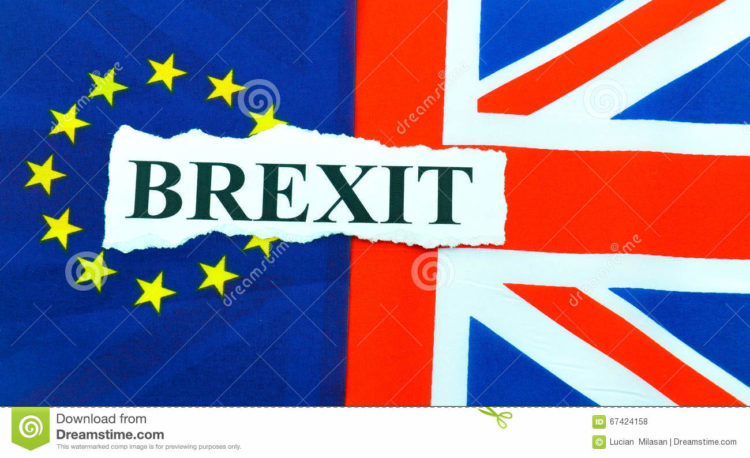May to Say Brexit Transition `Crucial’ for U.K. Business

published Nov 5, 2017, 6:01:00 PM, by Brian Swint
(Bloomberg) —
U.K. Prime Minister Theresa May will tell one of the nation’s biggest business groups that she backs a Brexit transition period to give companies more certainty, while urging executives to be more optimistic about the process.
“A strictly time-limited implementation period will be crucial to our future success,” May said in prepared remarks for a Monday speech at the Confederation of British Industry. “I know how important it is for business and industry not to face a cliff-edge and to have the time it needs to plan and prepare for the new arrangement.”
Talks with the European Union over the U.K.’s exit from the bloc are set to resume this week after a rocky start marked by a dispute over Britain’s bill for the divorce. The EU has been reluctant to let negotiators discuss post-Brexit trade arrangements until an agreement is reached on the bill, while the U.K. is reluctant to show its hand, partly because the issue is a divisive domestic issue.
The CBI is urging an end to the “soap opera” of Brexit and said it will appeal for a “single, clear strategy” in negotiations. According to survey data released by the organization on Sunday, about 10 percent of companies have started implementing plans for a “no-deal scenario.” By March, that share will rise to 60 percent.
Scope for Action
Bank of England Governor Mark Carney, who raised interest rates for the first time in a decade last week, said on Sunday that the central bank sees its scope limited to give the economy extra support if the Brexit deal goes sour.
Because the decision to leave the EU is reducing the speed the U.K. can grow without fanning inflation, the BOE may not be able to cut rates in the event no Brexit deal is reached and the economy performs worse than expected. Though he called it an “extreme” scenario, the bank may even need to lift borrowing costs to keep prices under control.
The BOE raised its key rate by a quarter-point on Nov. 2 after inflation accelerated to 3 percent, a full point above target. The tightening, which reversed a move after the Brexit referendum, came even as the U.K. expansion slowed this year compared to last.
If the U.K. fails to strike an EU deal, Brexit may cost 75,000 jobs in banking and insurance, Britain’s top banking regulator, Sam Woods, told lawmakers on Wednesday. Deutsche Bank AG may move about 4,000 positions to Frankfurt and Berlin from London.
Corbyn’s Attack
Labour leader Jeremy Corbyn, speaking later at the same event, will seek to highlight May’s failings to an audience that is losing patience with the government and its Brexit strategy.
“Watching chaos and confusion grow at the heart of government and Brexit negotiations stuck in a stalemate, many of you probably feel that the situation is more uncertain and more precarious than ever,” Corbyn will say, according to extracts of his speech released by his party’s office. “Time is running out.”
Goldman Sachs Group Inc. Chief Executive Officer Lloyd Blankfein has signaled on Twitter in recent weeks that he’ll be spending more time in Germany’s financial capital, and may not fill all the desks at the bank’s new London offices.
After missing an October goal for progress, May wants Brexit negotiations to move on to discussing the future trading relationship and a transition deal before the end of the year. In her CBI speech, she said that she’s determined “to give business and industry as much certainty as possible” during the process.
“We should be excited by the possibilities which this new relationship presents for the future, just as we are realistic in acknowledging that it will take time to finalize,” she said.
To contact the reporter on this story: Brian Swint in London at bswint@bloomberg.net To contact the editors responsible for this story: Paul Gordon at pgordon6@bloomberg.net Jana Randow, Steve Geimann
COPYRIGHT© 2017 Bloomberg L.P



No Comment